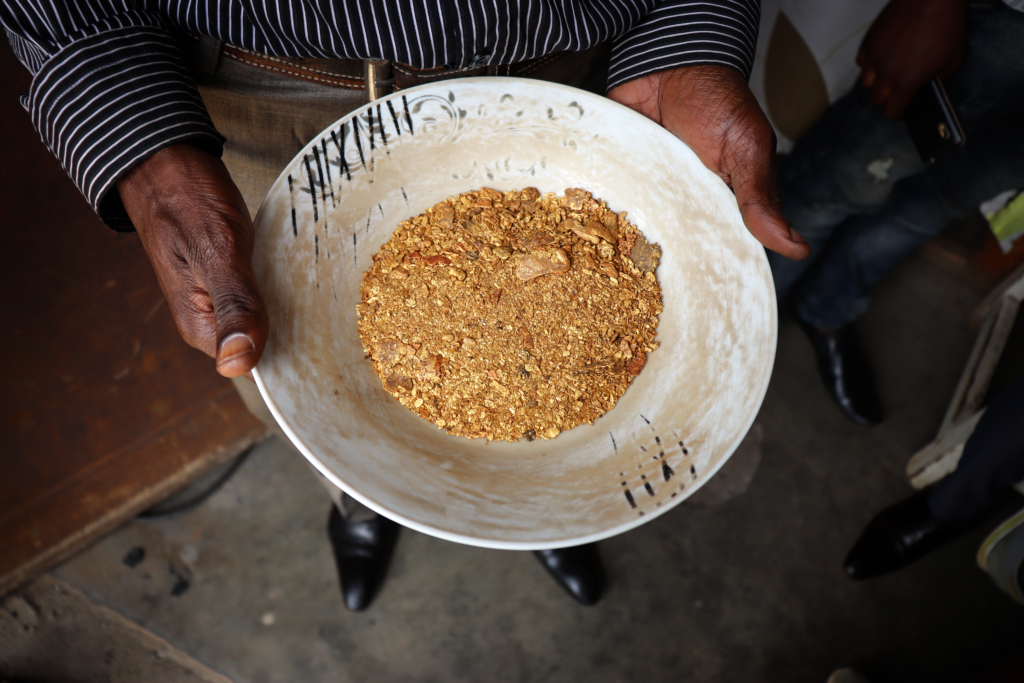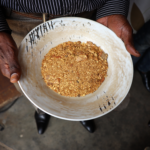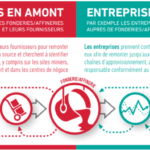In March 2017, after several years of negotiations and advocacy by civil society organizations, the European Union (EU) finally tackled the problem of conflict minerals by adopting a regulation. Although the step may seem important, it should be remembered that it is only a first step and that additional efforts are still essential to ensure that our consumption no longer finances armed conflicts.

- Establish effective information management systems (for example, identify imported minerals and quantities, specify their country of origin, the name and address of their suppliers, etc.);
- Assess the risks associated with the supply of minerals, i.e. the likelihood that these raw materials finance conflict, are the product of forced or child labor, etc. ;
- React responsibly to manage and remedy identified risks;
- Carry out an independent audit conducted by third parties;
- Publish a report each year on the exercise of their duty.
- Access for artisanal workers to secure mining zones (the legislation on artisanal mining zones (ZEA) already offers this possibility, but its implementation remains incomplete);
- Technical and financial support for artisanal miners and local communities so that they can create and manage cooperatives [15]On the issue of mining cooperatives, see EurAc, Accompanying measures to the EU Regulation on responsible mineral sourcing, For strengthening the governance of… Continue reading (for the moment, in reality, it is rather the elites who often benefit from cooperatives), access to credits and microcredits;
- Strengthening the capacities of Congolese state authorities and administrations, in particular the Small Scale Mining Assistance and Supervision Services (SAESSCAM) and the Mines Division;
- Une répartition plus équitable des coûts de certification et d’audit entre les creuseurs artisanaux, les intermédiaires, et le secteur en aval (les coûts de certification reposent actuellement de manière disproportionnée sur les creuseurs artisanaux) ;
- More direct cooperation between downstream companies and craft cooperatives to implement due diligence and shorten the supply chain;
- Support and protection of Congolese civil society, particularly in its advocacy and training work;
- A strengthened political dialogue at the regional level, particularly at the level of the International Conference on the Great Lakes Region (ICGLR), to enable better implementation of the regional certification mechanism, harmonization of taxation, and thus fight against fraud mining to neighboring countries.
Attachments
Notes[+]
| ↑1 | A regulation is a legal act of the European Union (EU). It is mandatory and directly applicable in all EU member countries. | ||
|---|---|---|---|
| ↑2 | This duty of care corresponds moreover to that provided for in the “ OECD Due Diligence Guidance for Responsible Supply Chains for Minerals from Conflict and High-Risk Areas » which, in certain parts, also addresses 3TG. Although it represents the reference text on the subject, the OECD guide remains voluntary, therefore subject to the goodwill of companies. The EU regulation is theoretically binding, that is to say obligatory. | ||
| ↑3 | See also, Justice and Peace, EU and conflict minerals: 2021 deadline, May 2017. | ||
| ↑4 | On entend par « chaîne d’approvisionnement en minerais », l’ensemble des activités, organisations, acteurs, technologies, informations, ressources et services intervenant dans le transport et la transformation des minerais depuis le site d’extraction jusqu’à leur incorporation dans le produit fini. | ||
| ↑5 | European Commission, Communication from the Commission to the European Parliament, the Council, the European Economic and Social Committee and the Committee of the Regions on the 2017 list of critical raw materials for the EU, COM(2017) 490 final, 13.9.2017. | ||
| ↑6 | Justice and Peace, | ↑7 | On the subject of diamonds, see the Justice and Peace study “Blood diamonds, what responsibility for Belgium? », June 2019. |
| ↑8 | Règlement délégué 2019/429 de la Commission du 11 janvier 2019 complétant le Règlement (UE) 2017/821 du Parlement européen et du Conseil en ce qui concerne la méthodologie et les critères à utiliser pour l’évaluation et la certification des mécanismes de devoir de diligence à l’égard de la chaîne d’approvisionnement en étain, en tantale, en tungstène et en or. | ||
| ↑9 | Voir par exemple l’Évaluation de l’alignement des programmes de l’industrie avec le guide de l’OCDE sur les minerais, 2018. | ||
| ↑10 | For more information on this and on the evaluation of the implementation of the Regulation, see the Joint Policy Note, Ensuring the proper implementation of the EU Regulation on the responsible sourcing of minerals from conflict or high-risk areas, April 24, 2019. | ||
| ↑11 | Communication conjointe de la Commission et du haut représentant de l’Union pour les affaires étrangères et la politique de sécurité, Pour une approche intégrée au niveau de l’Union de l’approvisionnement responsable en minerais provenant de zones de conflit ou à haut risque, March 5, 2014. | ||
| ↑12 | For an analysis of the proposed measures, see EurAc, Accompanying measures to the EU Regulation on responsible sourcing of minerals, March 2017. | ||
| ↑13 | European Network for Central Africa. | ||
| ↑14 | A full report of these discussions and recommendations will be published soon. | ||
| ↑15 | On the issue of mining cooperatives, see EurAc, Accompanying measures to the EU Regulation on responsible mineral sourcing, To strengthen the governance of the artisanal mining sector in the DRC, March 2017, p.13-16. |








